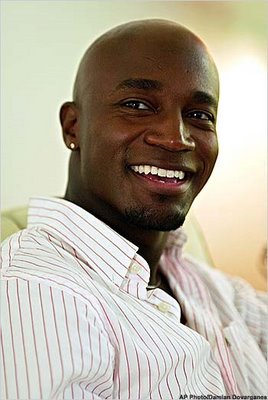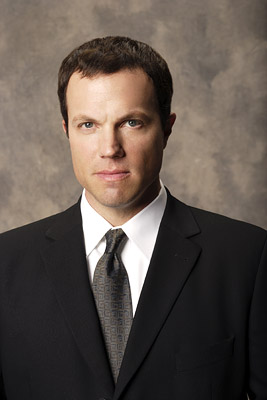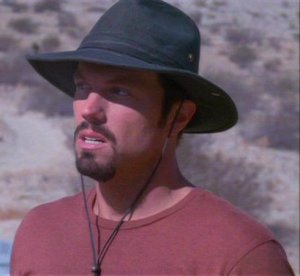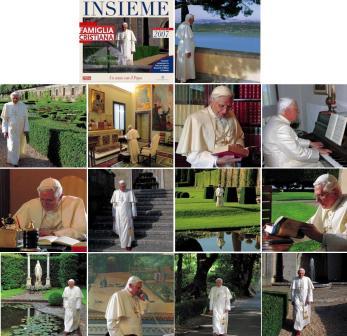by Raymond A. Schroth, S.J.
I am definitely looking at a lifetime of good reading here ... many year's worth at the very least. What could be better?
Below the list of books suggested by the author with numerous revisions. Books with red titles are not gonna be read by this reader. I am putting what I am substituting instead.
Thanks so much to everyone who took the time and trouble to comment or email me. The only thing as good as reading books is talking about them and this has been one big gabfest! I also got many good books to add in general to my reading list and that is always appreciated as well.
By the way, considering how many books we are discussing, this site may be of interest:
... the book price comparison site: BooksPrice.com . Recently we released a new redesigned site and we thought it might be interesting to you.I'll be updating the list with reviews and links as I work my way through the books. The link will be in the sidebar with what I'm reading currently.
http://www.booksprice.com is a free service of finding the best price on books among the major online stores. Our real time price comparison can help you save as much as 60% from the retail price. At BooksPrice you can look for the cheapest price on new & used books, and also compare the price on a purchase of several books together.
The Book of Genesis: I did a Bible study of this that was a real eye opener. I never knew there was so much depth to Genesis. What a great book!- The Book of Job: *sigh* ok but I am dreading it. The sadness, the complaining, the moaning ... I'm only going through with reading this one because it's in the Bible. Otherwise, it would be off this list so fast!
- The David Story: A Translation with Commentary of 1 and 2 Samuel by Robert Alter: ok, why not?
The Gospel of Luke: studied this several times.The Gospel of John: studied this several times.- The Confession by St. Augustine: I have taken three runs at this and always gotten bogged down by the self-pitying chapters about being beaten by tutors and other various problems of growing up. However, I see that Librivox has this coming out soon. That might be the help I need to push me over that hump.
Divine Comedyby Dante Alighieri: I read the John Ciardi translation. Hell and Purgatory gave me much food for thought but I found Heaven deadly dull. Steven Riddle comments likewise.Butler's Lives of the Saintsby Michael Walsh: I planned on reading this and then realized that my relative lack of enthusiasm is because I have read four or five good books about lots of saints already, some of them quite large and comprehensive (though I know this is the most comprehensive). However, I am more interested at this point in holiness demonstrated through people I haven't heard about a dozen times already ... so I am going to substitute African Saints: Saints, Martyrs, and Holy People From the Continent of Africa by Frederick Quinn. And, wonder of wonders, our library actually has this book!
UPDATE: after picking up African saints and looking through it, I sent it back to the library. The author, an Episcopal priest, had chosen the people that he felt should be saints. Which is all fine in its own way but when it came to seeing St. Augustine, his unknown consort, and their son all as saints together, I drew the line. I have read quite a few good saint books and don't really need to read more as I'll continue picking them up as I come across them. Therefore, I declare this section closed!- The Imitation of Christ by Thomas a Kempis: several versions of this are available on mp3, one is at Maria Lectrix. No problemo.
- The Idea of a University by Ven. John Henry Newman ... at the risk of sounding like Homer Simpson, "Booooring!" Instead I am reading Apologia pro Vita Sua (Penguin Classics)">Apologia as many people suggested. JM commented, "Newman is never a breezy read, but he can be very rewarding. If you are going to read only one thing, read the Apologia. He wrote it to defend himself (specifically) and the Catholic Church (generally) against the charge of having little regard for the truth, and in doing so, revealed the how and the why he converted. Amazingly, it worked."
- Walden by Henry David Thoreau: *sigh* ok, but I'm not looking forward to it. I think that someone advised reading it without looking into any introductions or notes so that I get the basic Thoreau unfiltered ... that is an excellent idea which I will follow for more than this particular book.
- The Second Inaugural Address by Abraham Lincoln: Lincoln's my hero; can't wait!
- The Brothers Karamazov by Fyodor Dostoyevsky: a classic I've been meaning to read for a long time; can't wait!
The Story of a Soul by St. Therese of Lisieux: it didn't grab me but, again, everyone can't love every single saint- Mont-Saint-Michel and Chartres by Henry Adams: can't wait!
- Orthodoxy by G.K. Chesterton: another one that I've tried to read several times. Chesterton is just too smart for me. It was suggested that Chesterton's fiction might be an easier way to go but I really can't stand the Father Brown books (for one thing if I can figure out a mystery practically as soon as it begins then it never was much of a mystery in the first place) and I've never been interested in any of his other fiction. However, I just remembered that Everlasting Man was suggested as a substitute and I've always been interested in reading that so I'm going to go that route. If I can get through Everlasting Man then I'll take another shot at Orthodoxy ... perhaps I'll be used to Chesterton's style and able to progress further then.
- Dubliners by James Joyce: I don't like the whole idea of reading James Joyce but ... what the heck. Ok James, surprise me!
- Kristin Lavransdatter by Sigrid Undset: never heard of it before now so why not. Cautions have been given that some translations are much better than others so if one seems awkward to read, stop and get another.
- Therese by Francois Mauriac: Based on Steven Riddle's comments, I will go with Tangle of Vipers by the same author instead of Therese.
- Death Comes for the Archbishop: this book has been recommended to me many times by people I trust; can't wait!
Mr. Blue by Myles Connolly: my review is here- Out of My Life and Thought: An Autobiography by Albert Schweitzer: can't wait!
- The Diary of a Country Priest by Georges Bernanos: can't wait!
- The Power and the Glory by Graham Greene: an alcoholic priest in Mexico; gee there's so much to love about this story. No wonder I've avoided it like the plague all these years. Look's like it's time to pay the piper; I'll give it a shot
- Black Lamb and Grey Falcon: A Journey through Yugoslavia by Rebecca West: never heard of it before now so why not.
- Brideshead Revisisted by Evelyn Waugh: aaargh! I'll finally be forced to read this book. All I can say is I hope it isn't another Helena (which I detested and yes I know it's a classic, etc.).
- Cry, the Beloved Country by Alex Paton: never heard of it before now; sounds interesting so ok
- The Seven Storey Mountain by Thomas Merton: Tried twice, hated it. Yes, you heard me. Hated it. Based on Steven Riddle's comments I am going to substitute Waters of Siloe which I've never heard of ... which in itself adds a certain amount of interest.
- Letters and Papers from Prison by Dietrich Bonhoeffer: I had no strong feelings one way or the other but JM's thoughtful comments changed my mind to a different work by Bonhoeffer. "In my opinion, what B. wrote that the world and modern Christians most need to hear is in The Cost of Discipleship. In it he takes apart “cheap grace” and sent me, for one, looking for the real thing."
On the other hand, Steven Riddle warns: ... while the message is valuable, you'll have to insulate yourself against a large amount of anti-clericalism and anti-Catholic diatribe that permeates the beginning of the book. I never made it through that... - The Long Loneliness by Dorothy Day: can't wait!
- The Family of Man by Edward Steichen: photographs, interesting idea. Why not?
- Divine Milieu by Pierre Teilhard de Chardin, S.J.: originally I was looking forward to this but continuous negative commentary coupled with a few things that came up in scripture study from obvious Chardin supporters made me change my mind. There is no connection at all but I am going to substitute Rumer Godden's Five for Sorrow, Ten for Joy. Godden is every bit as difficult to read as Flannery O'Connor in that she looked unflinchingly at the unpleasant truth of human actions. However, her style is so much more attractive to me at the same time that I can take it more easily from Godden. This is one of hers that I haven't read yet.
A Canticle for Leibowitzby Walter M. Miller Jr.: a sci-fi classic that I can't remember if I've ever read ... can't wait! UPDATE: I am very disappointed in myself but I just could not get into that book for love or money. I left it unfinished. UPDATED AGAIN: I now find out that there was a long-ish short story by Miller and that the book was finished off by someone else. Aha! The story ended just where I wanted it to ... with the little monk presenting the drawings and then planning to go back to where the bandits were. A much more Christian take than what I read in the novel.- Morte D'Urban by J. F. Powers: never heard of it before now so why not.
- The Other America by Michael Harrington: the poor in America ... I've only read about this issue until I'm practically blind. I don't think so. Again, with no particular connection in this substitution, it was suggested that I read The Long Walk: The True Story of a Trek to Freedom. Reading the summary it looks as if the "true" part of the story is not actually true but it sounds as if the story itself is still quite worth reading.
- The Four Loves by C.S. Lewis: LOVE C.S. Lewis; can't wait!
- The Historic Reality of Christian Culture: A Way to the Renewal of Human Life by Christopher Dawson: no strong feelings one way or the other so why not.
- The Edge of Sadness by Edwin O'Connor: sure, why not.
- Letter from Birmingham Jail by Martin Luther King, Jr.: I originally wasn't going to read this but the comments were so overwhelmingly positive that I am putting it back on the list. I'm trusting y'all on this one!
- Everything That Rises Must Converge, "Revelation" by Flannery O'Connor: dreading it, afraid of O'Connor, but also looking forward to what I might learn ... in a weird way.
- The Autobiography of Malcolm X by Alex Haley: I'm kind of interested in Malcolm X after listening to Rose talk about him when studying him in American history. Also I really enjoyed reading Roots by Haley so I'm looking forward to a well told story.
Silence by Shusaku Endo*****--:no way. If only Schroth hadn't said it was the most depressing book he'd ever read. I don't think so. I'm open to suggestions for substitutions, preferably fiction.This is how much I trust Steven Riddle. I will give it a shot based on his comments and strong recommendation. UPDATE-MY REVIEW: Christianity in a nutshell. An amazing book that provides so much food for thought. The tale of a 17th century Jesuit priest as he is smuggled into Japan to serve the Christians under persecution, is discovered, and undergoes the ultimate test of faith. Endo, writing for the Japanese, is examining the questions of how Christianity must adapt to be truly meaningful to the Japanese and also the question of what Christian faith truly consists of. He leaves these questions open enough that there was a considerable amount of debate at our book club and almost everyone had a insight that was fascinating. The author's considerable talent holds us far enough away from the details of persecution to allow this to become an intellectual consideration while still being a personal experience. An extraordinary book that I am glad I read.- A Theology of Liberation: History, Politics, and Salvation by Gustavo Gutierrez: just as I am profoundly disinterested in movements like Opus Dei because I ... well, I just don't care ... I feel the same way about liberation theology. Erik suggested the Don Camilio books by Giovanni Guareschi. I never heard of him but found that these are children's books ... which luckily our library has in English translations. I figure that several of them will equal or exceed the amount I actually would have read of anything about liberation theology.
- The Fate of the Earth by Jonathan Schell: right, because I've never read anything about how we might blow up the earth before now. I don't think so. March Hare says, "Instead of "The Fate of the Earth" try "Earth Abides" by George R. Stewart. It's a novel and a classic (IMHO). I think his scenario of how civilization will end is much more plausible than anything I've read lately--and Stewart wrote this book in the 1940's, I believe!" And so I will.
- The Love of Jesus and the Love of Neighbor by Karl Rahner, S.J.: I don't like a single thing that I'm hearing beginning with accessibility and going on from there. Therefore, I will take a suggestion from the strongest anti-Rahner voice in the crowd ... which would be Georgette ... and reading The Hidden Power of Kindness -- by Father Lawrence Lovasik. She says, "This is the clearest and most practical and simply-written spirituality for lay folks ever written! If you have trouble with the spiritual classics written BY nuns and monks in cloister, FOR nuns and monks in cloister (mostly), like The Seven Story Mountain, by Merton (he got weird towards the end of his life but this book is excellent, though hard for most lay folks to engage), or The Dark Night of the Soul, by St John of the Cross (also WONDERFUL but obscure), or St Teresa of Avila's Interior Castle (which I am sorta getting into now, but still very sublime)----then The Hidden Power of Kindness is definitely for you. I think it should be required reading for all Catholics! It is basically the Gospel put into practical step by step 'how to' terms! Brilliant!
- In Memory of Her: A Feminist Theological Reconstruction of Christian Origins by Elisabeth Schussler Fiorenza: Oh, hell no! (stolen from Tom at Disputations) Per Erik's suggestion, I'll be reading Bread and Wine by Ignazio Silone.
- Black Robe by Brian Moore: if Schroth wanted me to read this he shouldn't have mentioned the extensive mutilation and torture spread throughout the book. No thanks. I'll go with Steven Riddle's suggestion of The Lonely Passion of Judith Hearne by Moore instead.
- Dead Man Walking: An Eyewitness Account of the Death Penalty in the United States by Helen Prejean: I was ready to read this until comments by Erik and Tom of Disputation's comment rang true here for me ... I already am not on board with the death penalty. Also I've been getting these quite detailed emails about how that book is all wrong anyway ... either way I am off it. I was thinking about Walker Percy but a lot of confusion in that area leaves me bookless again. I am going to veer in a completely new direction ... let's see how this flies. Belief in God in an Age of Science by John Polkinghorne.
- The Life of Thomas More by Peter Ackroyd: Peter Ackroyd's a great author; can't wait!
All Saints: Daily Reflections on Saints, Prophets, and Witnesses for Our Time by Robert Ellsberg: one of the first books I bought after becoming Catholic. It took me a while to notice that the saints Ellsberg includes aren't all canonized or even Christian but it's a good book anyway.
- The First Jesuits by John W. O'Malley, S.J. ... this one's been on my "to read" list for a while
- History of Christianity by Paul Johnson ... this one's been on my bookshelf for a year; this is just the thing I need to make me pick it up and read it.
These are suggestions that I want to hang onto in case I just can't make progress on one of the above books ... ready made substitutes in an easy to find place! Some ideas found their way onto my regular "to read" list before I decided to keep extras here ... rest assured none have been lost.
- Dietrich von Hildebrand-- Georgette says: "He is a genius theologian and very reliably orthodox. His wife, Alice von Hildebrand, is also a genius in her own right. I have read many articles and excerpts from their works, but not any one book in particular in its entirety--yet. It takes concentration to read them (as with any philosophical or theological work--for me at least!), but worth the pay off. "
Jeff Miller recommends, " 'Transformation in Christ' I can't heap as much praise on this book as I would want. I think it will be one day fully recognized as a spiritual classic. His wife wrote an biography of him that is truly fascinating called Soul of a Lion. His conversion is detailed in there since he is a convert who grew up in a family of agnostic artists. Pretty much all of his brothers and sisters ended up converting to the Catholic Church. His time where he was working against Hitler is also quite interesting and he was even listed by Hitler as one of his greatest enemies. The story of his narrow escape from the Nazi's is also pretty exciting. - Abandonment to Divine Providence by Father Pierre de Caussade: Georgette says ... "is another spiritual classic which is sublime but VERY simplistic in its approach-- it is a wonderful spirituality. This one is a bit more mature spiritual nourishment, but when you are ready for it, it is outstanding. This book, I should add, contains the basis for the spirituality of the newest doctor of the Church, St Therese of Lisieux (aka "The Little Flower")."
- Erik suggests the Book of the New Sun which, rather confusingly, seems to be found in two pieces, each consisting of two books: Shadow & Claw: The First Half of 'The Book of the New Sun', Sword & Citadel: The Second Half of 'The Book of the New Sun'.
- War and Peace by Tolstoy
- Alicia suggests: "I would actually recommend Madeleine L'Engle's paraphrasing and fictionalization of parts of Genesis -
- And It Was Good: Reflections on Beginnings, 1983
- A Stone for a Pillow: Journeys with Jacob, 1986
- Sold Into Egypt: Joseph’s Journey into Human Being, 1989"
- Steven Riddle recommends: Zaccheus Press has produced a very nice volume, Our Lady and the Church by Hugo Rahner. Tom, at Disputations, posted a review some time ago. I have read the book and didn't get as much out of it as he did, but I have to confess lingering protestant problems with Our Lady. However, seems appropriate to suggest it as your choice on this feast day.
Jeff adds: "I would second Our Lady and the Church by Hugo Rahner. I really enjoyed it. I haven't read any of his brother Karl's books since I heard some parts of them were problematic. Though some good orthodox Catholics recommend some of what he writes." - Julie at Adoro te Devote says, "Alice von Hildenbrand...read her "The Privilege of being a Woman". Fascinating, not very long...and you will literally ABSORB it."
- Rick Lugari: I know we've talked about Dr. Warren Carroll's History of Christendom series before. It's an excellent and I would count it as mandatory reading for any Catholic
- My own recommendations for others would include:
- Uncle Tom's Cabin
- Who Moved the Stone
- In This House of Brede: one of the most perfectly written books ever. I always was fascinated by Catholic characters and this shows them probably the best of any I've ever seen. The very real and imperfect people (Dame Veronica anyone?) in this religious community come up against struggles even in their cloistered environment ... which is set against a wonderful overall story.
- Catholic Christianity which is the book that made me into a fully devout Catholic. Despite its size I was so fascinated when I began reading that I finished it in four days. Kreeft explained all the logic behind controversial Church teachings so well that I understood all I needed to in order to support the Magisterium.
Tags: Catholicism, Christianity











